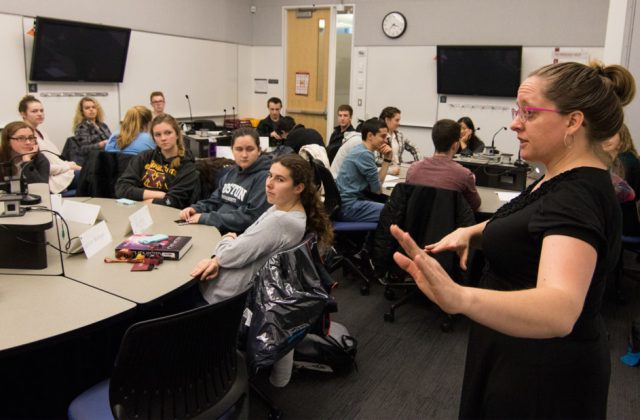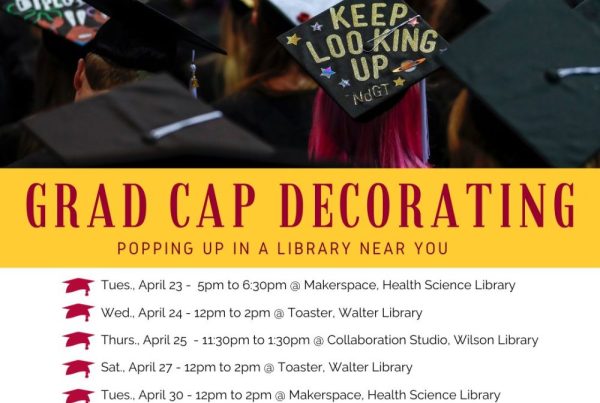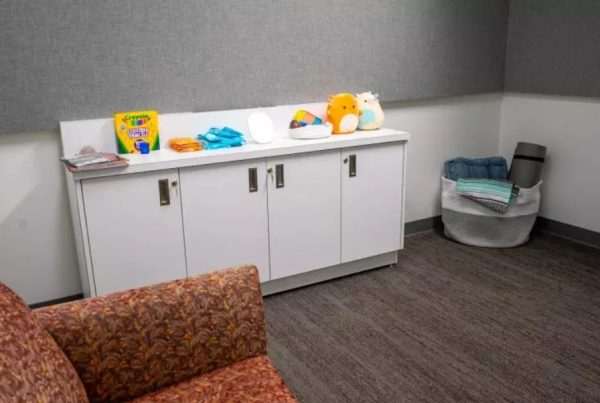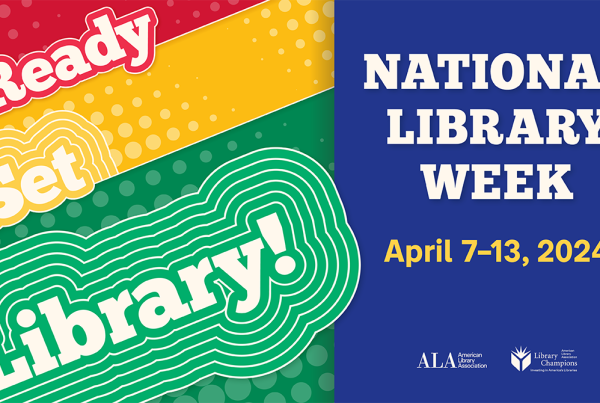By Jon Jeffryes
Helping first-year engineering students transition to college is just another role that librarians have taken on.
In fact, every semester University of Minnesota librarians collaborate with faculty and instructors to teach in-class sessions on library databases, critical inquiry, data management, multimedia tools, and more.
In the fall, two librarians, Meghan Lafferty (Chemistry, Chemical Engineering, and Materials Science) and Kate Peterson (Undergraduate Services) expanded their teaching role, acting as lead instructors for two of the 28 sections of CSE 1001: First-Year Experience that reach over 1,000 incoming College of Science and Engineering (CSE) students.
The class aims to help first-semester students with the transition to college. The course examines CSE majors and career options as well as campus resources and opportunities. It also introduces skills necessary for success, such as communication skills, critical thinking, teamwork, and time management. Skills that the class of 2020 identified as topics of concern in transitioning to college — 56 percent reported a concern about academic coursework, 44 percent reported concern about deciding on a major/career path.
It was “a pretty natural role for a librarian,” Peterson said, citing the experience of librarians in connecting students and other researchers to relevant campus services.
Lafferty drew upon her experience as an undergraduate and graduate student in chemistry, finding it “helpful to have this sense of what it’s like to be a student in one of those fields.” Lafferty also leveraged her experience with another credit-bearing course — she taught Chemical Literature and Information Retrieval for the Chemistry department for seven years.
Changing Student Perceptions of the Library
Students appreciated the broad knowledge and varied experiences that librarian instructors brought to the classroom. Many remarked that it changed their perception of librarians and libraries.
“I’d always assumed they existed solely for a study space and to provide textbooks with studies that could aid essays and lab reports, but our library program at the U has so much more” said student Rose Anderson. “I’m not sure whether or not I would have gone to seek out what the libraries offered on my own, but now I use them quite consistently.”
CSE 1001 student, Eric Hess, had a similar reaction. “I did not realize how powerful of a resource librarians are for students, and how easy it is to receive help from one.”
‘Our students are absolutely amazing’
Both librarian instructors cited the opportunity to work with students over an entire semester as a benefit in learning more about undergraduate students and their experiences.
“It was good to have a reminder of the things that are hard for them — what their thoughts are, what their priorities are,” Lafferty said.
Each librarian plans to use their experiences with first-year students to inform their day-to-day work building services and collections to support the educational needs of the University.
“Our students are absolutely amazing,” said Peterson. “And there’s such a range of experiences.”





